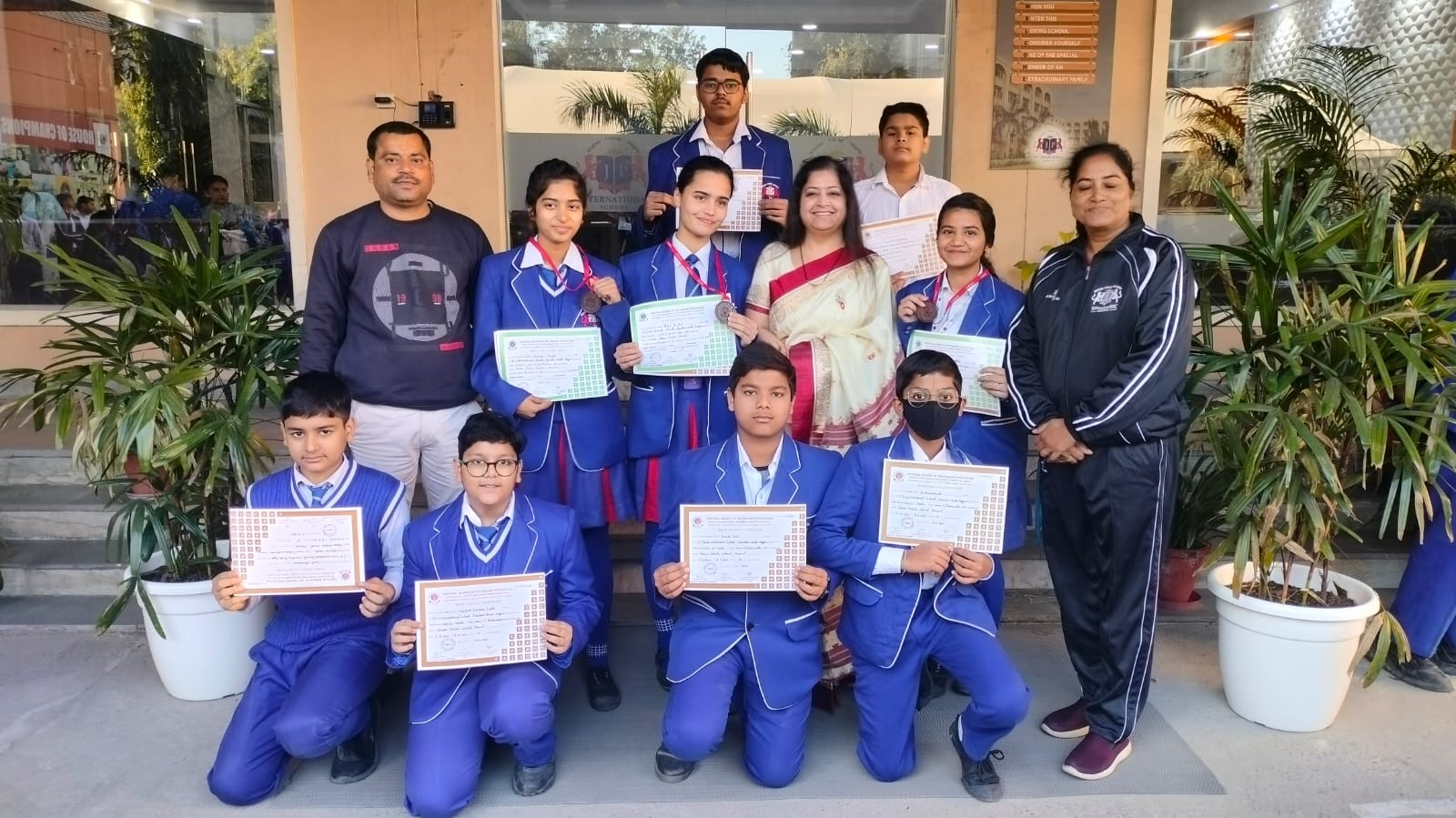

T:+91 7669-933-404
Email: [email protected]
Plot 3A, Sector Omega 1, Near Pari Chowk, Greater Noida, GB Nagar, Pin Code 201308


T:+91 7669-933-404
Email: [email protected]
Plot 3A, Sector Omega 1, Near Pari Chowk, Greater Noida, GB Nagar, Pin Code 201308

Interpersonal skills remain a vital component of success in various phases of life, from academics to personal and professional achievements. For students, mastering such skills enables them to convey information effectively, associate with fellow students and peers and engage in constructive pursuits. Since the world is integrated and people have to communicate verbally, in writing, or non-verbally, communication becomes key to achievement in academics, career and personal life. Mastering these skills opens doors to personal growth and success. Here we have discussed why communication skills are crucial and how students can improve these skills.

Efficient communication is a sum total of verbal skills, writing and listening skills and body language. It takes into account other people’s gestures and signs and the context of communication. Why students must master the skills of communication are clear.
Academic Success: Effective communication enables students to express themselves by speaking, questioning, as well as interacting with their colleagues and teachers; this enables better learning and processing of information.
Social Interaction: Students can create and sustain interpersonal relations, manage conflicts and perform tasks in teams due to effective communication skills.
Career Readiness: In any given working environment, the aspect of communicating is always considered important. Employers look for people who can present their ideas logically, bargain and collaborate well in a group.
Personal Development: Speaking well aids in being more assertive and therefore in establishing their opinions and arguments.
It is necessary to distinguish several aspects of communication skills, all of which are crucial for interaction processes.
Verbal and Written Communication: This includes vocal skills that may mean being able to articulate ideas or opinions verbally and in writing. These involve choice of words, grammatical correctness, mastering languages and quality presentation through proper language, neatness, all the while keeping in mind the target audience.
Non-Verbal Communication: Body language, facial expressions, eye contact and gestures all convey messages. Understanding and using non-verbal cues enhances the power of communication.
Listening Skills: Active listening involves fully concentrating, understanding, responding and remembering what is being said. Listening well and responding in accordance forms the basis of effective communication.
Interpersonal Skills: These skills help students interact positively with others. These include empathy, patience and the ability to build rapport and work in diverse teams.
Public Speaking: The ability to speak in front of an audience confidently and effectively is a crucial communication skill that enhances academic and professional opportunities.
Developing strong communication skills has a lasting impact on students’ future success. Here are some ways these skills benefit students beyond the classroom:
Academic Achievement: Students with strong communication skills are better equipped to understand and articulate complex concepts, participate in discussions and collaborate on projects. This leads to improved academic performance and a deeper understanding of subject matter.
Career Opportunities: Effective communication is a highly valued skill in the job market. Employers seek individuals who can communicate clearly, work well in teams and present ideas persuasively. Strong communication skills can open doors to diverse career opportunities.
Leadership and Influence: Good communicators are often effective leaders. The ability to convey ideas, motivate others and build consensus is essential for leadership roles in any field. Strong communication skills enhance students’ ability to lead and influence others.
Personal Relationships: Communication is the foundation of healthy relationships. People who can express themselves and understand others are better equipped to build and maintain positive relationships with peers, family and colleagues.
Self-Confidence and Self-Esteem: Developing communication skills boosts self-confidence and self-esteem. Students who can articulate their thoughts and feelings are more likely to advocate for themselves and pursue their goals with confidence.
Interpersonal communication is one of the key components of student development in JP International School; this affects learning and empowers personality growth. When students learn about verbal and non-verbal communication, written and digital communication and improve their listening skills, they become better communicators. JP International School inspires students to use techniques such as group work, public speaking, reading and analysing feedback, all of which enable students to master communication skills effectively.
Effective communication enables students to enquire, elucidate concepts, and engage in group conversations. This enhances their learning experience and helps them be more persuasive and collaborative. Further, effective communication is the foundation stone to leadership roles in future.
- JP International School29 March 2025
Technology allows students' everyday journey, be it in academics or outside of academics, to be t...
22 March 2025
STEM education prepares students for healthcare careers by combining biology, chemistry and physi...
15 March 2025
By embracing innovative EdTech solutions while preserving valuable aspects of traditional educati...
8 March 2025
This journey becomes more enriched when parents too take an active lead in their children’s aca...
28 February 2025
These are essential 21st century skills which students must be trained in to succeed in a world w...
 28 November 2024
28 November 2024
.jpg) 27 November 2024
27 November 2024
 8 December 2022
8 December 2022
